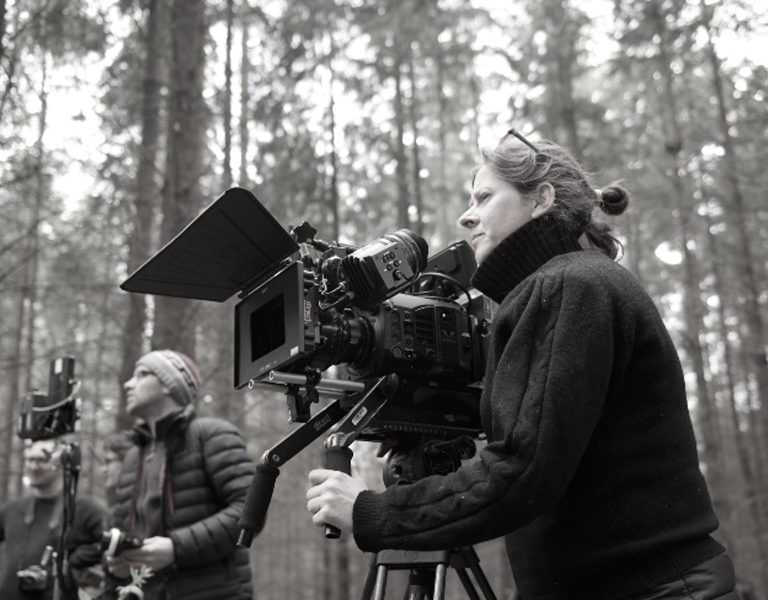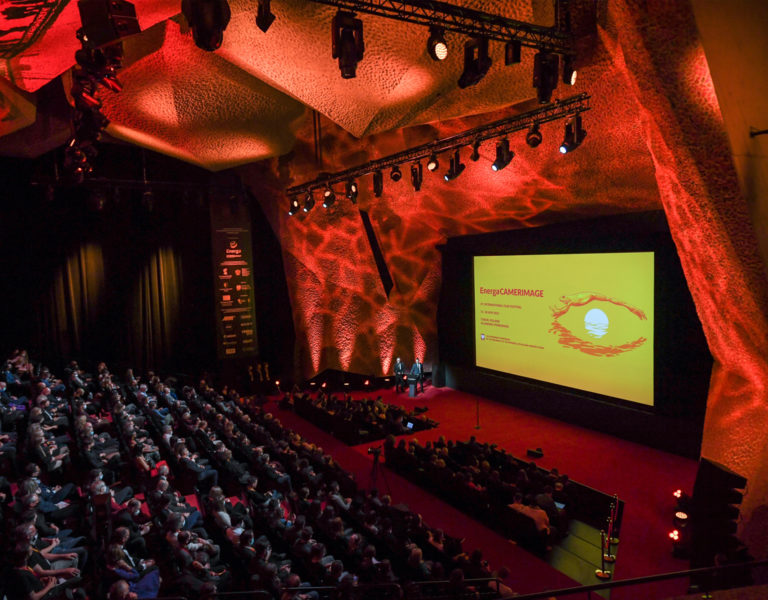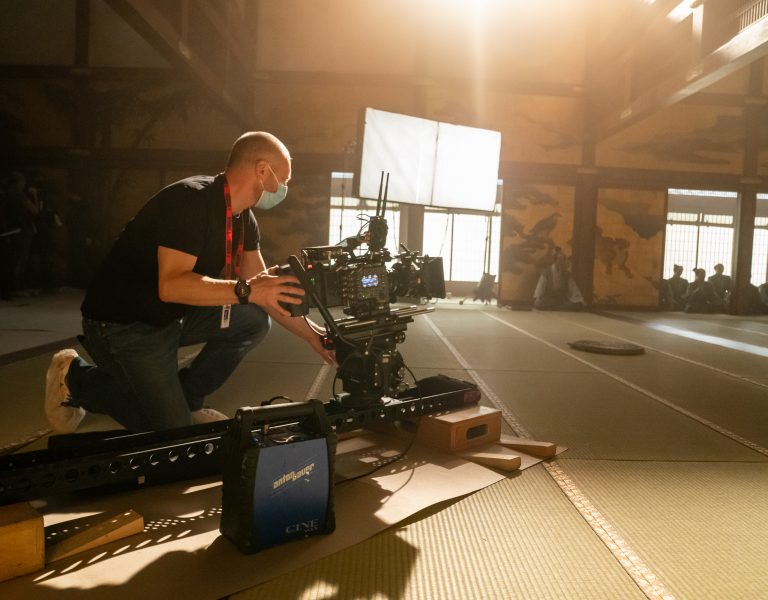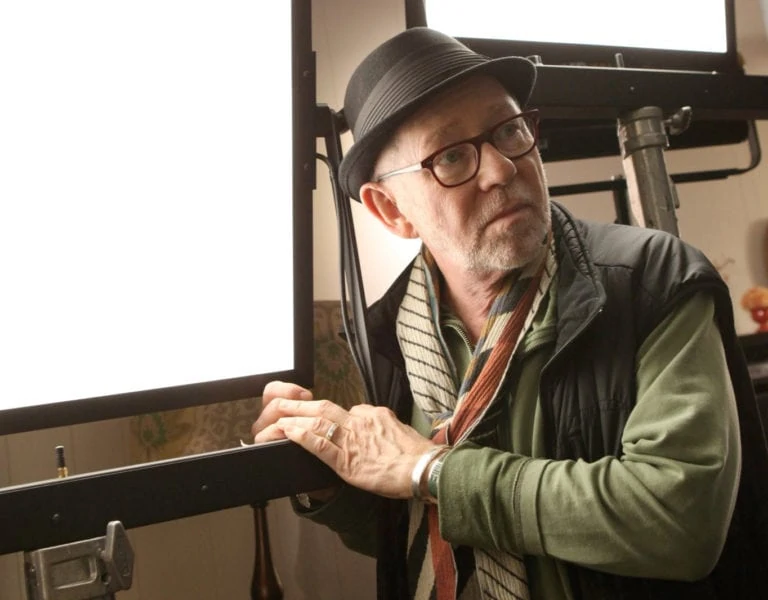Like other creative sectors, the film industry relies heavily on the infusion of fresh perspectives and innovative ideas to remain competitive. Yet, the decline of access to creative subjects spells a potential waning of young, diverse talents–the traditional source of innovation in cinematic arts. In this context, strategically developing and nurturing a diverse talent pipeline is crucial.
One way of doing this is by offering free courses to teenagers, not only to equip young aspirants with necessary filmmaking skills but also to help signpost routes into the industry. In this article, Lucy Kennedy, Chief Executive of National Saturday Club, explores the multifaceted benefits of such initiatives. From helping young people discover the joy of learning and building their creative skills to serving as a critical lifeline for the industry’s future.
Lack of equity in cultural and creative industries
Participation in creative and cultural extracurricular activities has proven to enhance academic performance, boost wellbeing, and increase engagement in school as well as enhance young people’s joy in learning. These opportunities provide crucial safe spaces where young people can grow and explore beyond the constraints of formal education.
However, a significant disparity persists in the UK, where young people from underserved and underrepresented backgrounds face barriers to accessing creative and cultural engagement opportunities. This inequity severely restricts their ability to explore personal interests, unlock their potential, and pursue the career paths they may find fulfilling. To build a more inclusive society where every young person has a fair chance to flourish, bridging this opportunity gap is vital.
Breaking barriers to creativity and opportunity
Programmes like the National Saturday Club help to address educational inequities by offering free, accessible learning opportunities in creative and cultural subjects outside of school. By nurturing vital creative skills not usually acquired in the formal education system and adopting a non-formal approach, this approach builds confidence and inspires a passion for learning in young people. The Club welcomes 13–16-year-olds from across the UK, providing a year-long programme of free weekly sessions which explore subjects such as arts, design, fashion, and film. These fields, which are often overlooked in school curriculums, can be explored at nearby partner universities, further education colleges, or cultural institutions. The initiative is funded by the Department for Education, Arts Council England, and by organisations including the British Film Institute (BFI) awarding National Lottery funding , British Fashion Council, and Clore Duffield Foundation.
The benefits of access to film & screen opportunities
The Film&Screen Saturday Club, supported by the BFI, offers a comprehensive exploration of the film and screen industry, introducing skills from production and sound design to VFX, scripting, and animation. Club members have the chance to tell their unique stories while gaining hands-on experience in aspects like filming, editing, and lighting. Through this, they learn the powerful art of storytelling and its significant role in shaping society and culture.
With 76% of the National Saturday Club’s members coming from underserved communities, this initiative is pivotal in bridging socio-economic barriers, promoting social mobility, and supporting study and career progression.
A University College London study highlights that creative and cultural activities reduce depression, improve physical health, and boost life satisfaction, with these benefits enduring across all demographics, socio-economic backgrounds, and medical histories. Similarly, National Saturday Club research shows its programmes encourage social and emotional growth, build confidence, and create a sense of community. They also enhance academic passion, expand career awareness, and develop essential skills like communication and problem-solving, highlighting the transformative impact of cultural and creative engagement. These elements are critical for broadening access to creative spaces.
Building wider industry support
The creative industries are vital to the UK economy, generating £125 billion annually and serving as a core focus of the Government’s economic growth strategy. The UK film sector alone is worth £1.36 billion, employing over 195,000 people, with significant potential for further growth supported by initiatives like the recently introduced Independent Film Tax Credit (IFTC).
Opportunities such as the Film&Screen Saturday Club make visible pathways into the breadth of careers open to young people and the further and higher education opportunities in the creative sector. However, offering all young people access to cultural and creative opportunities goes beyond delivering enjoyable learning experiences or nurturing the next generation of artists, designers and performers. It equips them with the skills and mindsets needed to thrive in a fast-changing world, to become the future innovators, entrepreneurs and leaders.
Importantly, it also cultivates a diverse talent pipeline to support the UK’s flourishing creative sector, ensuring it remains future-ready and globally competitive.
Broader support needed
While The National Saturday Club demonstrates the transformative power of investing in young people’s creative potential, we need to do more. Frameworks such as the National Saturday Club are eminently scalable and benefit from established networks and expertise which can inform best practice. Policymakers, educators, and the cultural sector must work collaboratively to ensure every child in the UK has equitable access to extracurricular opportunities. Creative programmes, such as Film&Screen Clubs, empower all young people to reach their potential, contribute to society, and shape a more inclusive creative and cultural landscape.









